Collective Molecular Activities of the Plant: Ruscus Hypoglossum
Plant ID: NPO11950
Plant Latin Name: Ruscus Hypoglossum
Taxonomy Genus: Ruscus
Taxonomy Family: Asparagaceae
Plant External Links:
NCBI TaxonomyDB:
191652
Plant-of-the-World-Online:
n.a.
Country/Region:
TurkeyTraditional Medicine System:
Turkey
Overview of Ingredients
54 All known Ingredients in Total
Unique ingredients have been isolated from this plant.Plant-Ingredients Associations were manually curated from publications or collected from other databases.
1 Ingredients with Acceptable Bioavailablity
Unique ingredients exhibit acceptable human oral bioavailablity, according to the criteria of SwissADME [PMID: 28256516] and HobPre [PMID: 34991690]. The criteria details:SwissADME: six descriptors are used by SwissADME to evaluate the oral bioavailability of a natural product:
☑ LIPO(Lipophility): -0.7 < XLOGP3 < +5.0
☑ SIZE: 150g/mol < MW < 500g/mol
☑ POLAR(Polarity): 20Ų < TPSA < 130Ų
☑ INSOLU(Insolubility): -6 < Log S (ESOL) < 0
☑ INSATU(Insaturation): 0.25 < Fraction Csp3 < 1
☑ FLEX(Flexibility): 0 < Num. rotatable bonds < 9
If 6 descriptors of a natural plant satisfy the above rules, it will be labeled high HOB.
HobPre: A natural plant ingredient with HobPre score >0.5 is labeled high human oral availability (HOB)
5 Ingredients with experimental-derived Activity
Unique ingredients have activity data available.Ingredient Structrual Cards
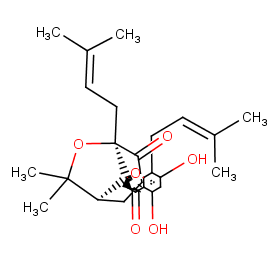
Ingredient ID: NPC94796

Ingredient ID: NPC93075
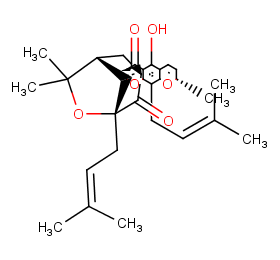
Ingredient ID: NPC93020
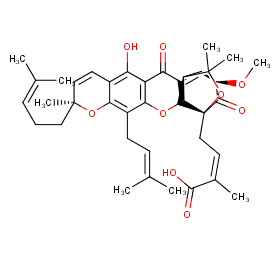
Ingredient ID: NPC86668
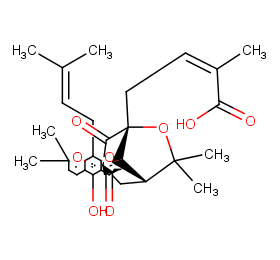
Ingredient ID: NPC40089
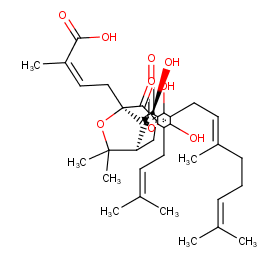
Ingredient ID: NPC39379
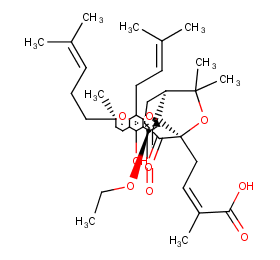
Ingredient ID: NPC3245
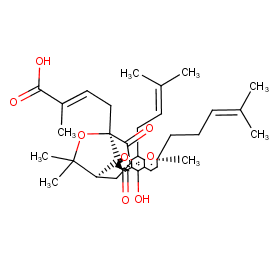
Ingredient ID: NPC296677
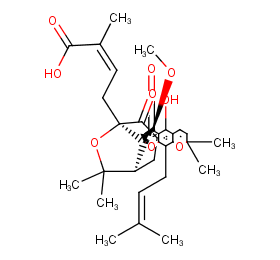
Ingredient ID: NPC294457
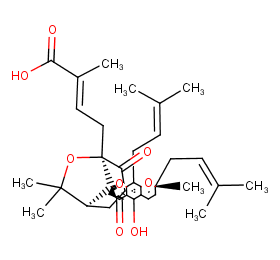
Ingredient ID: NPC29172
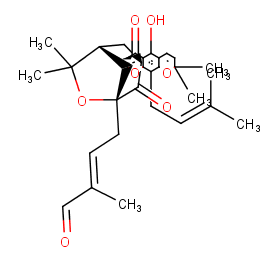
Ingredient ID: NPC285154
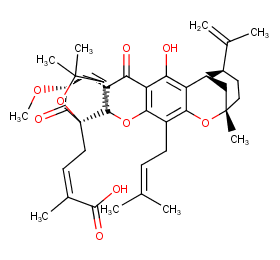
Ingredient ID: NPC281428
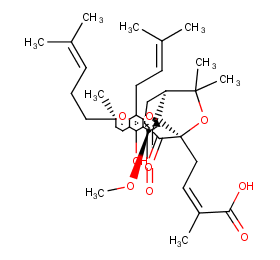
Ingredient ID: NPC280547
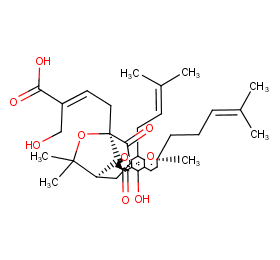
Ingredient ID: NPC271086
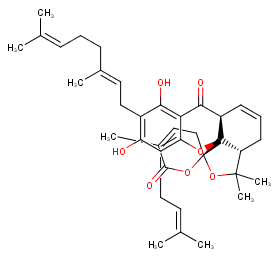
Ingredient ID: NPC264425
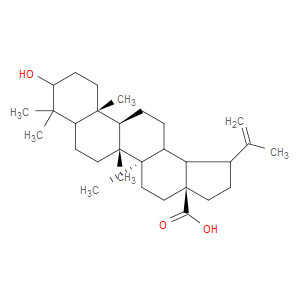
Ingredient ID: NPC264317
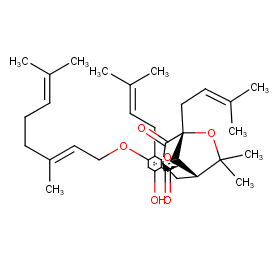
Ingredient ID: NPC262649
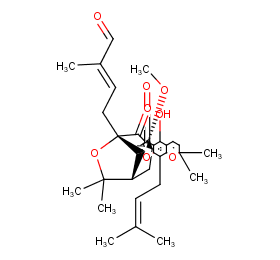
Ingredient ID: NPC256546
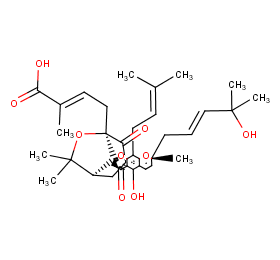
Ingredient ID: NPC253773
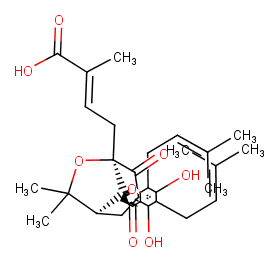
Ingredient ID: NPC251641
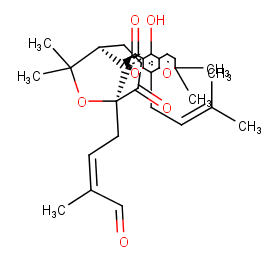
Ingredient ID: NPC249014
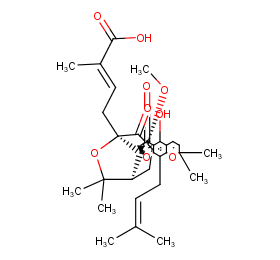
Ingredient ID: NPC244702
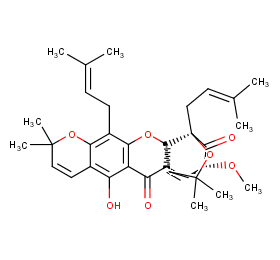
Ingredient ID: NPC240340
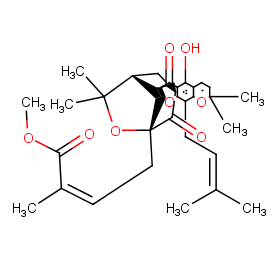
Ingredient ID: NPC236607
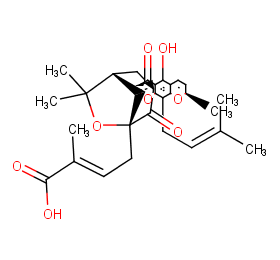
Ingredient ID: NPC225629
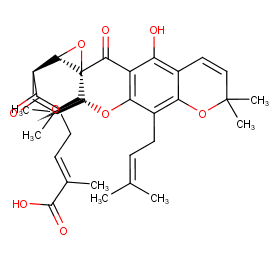
Ingredient ID: NPC210537
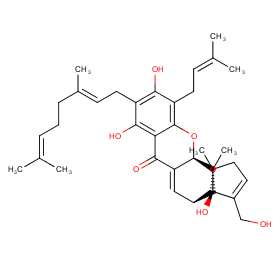
Ingredient ID: NPC210234
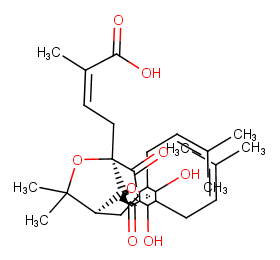
Ingredient ID: NPC209611
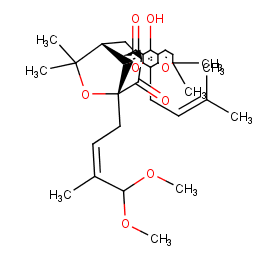
Ingredient ID: NPC205513
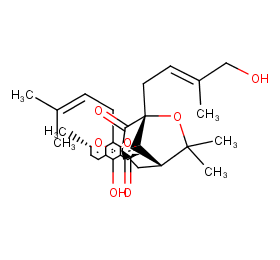
Ingredient ID: NPC192403
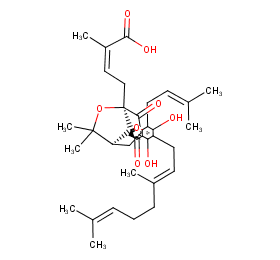
Ingredient ID: NPC189689

Ingredient ID: NPC188727
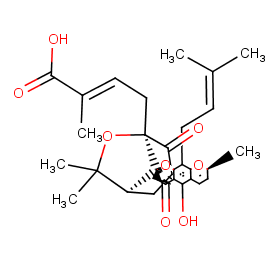
Ingredient ID: NPC18825
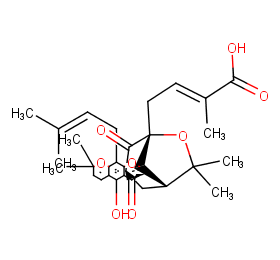
Ingredient ID: NPC186941
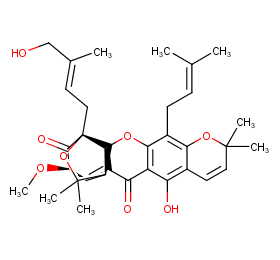
Ingredient ID: NPC182107
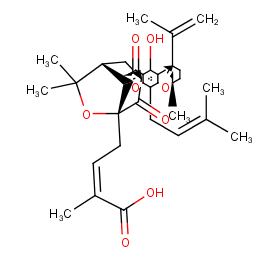
Ingredient ID: NPC179174
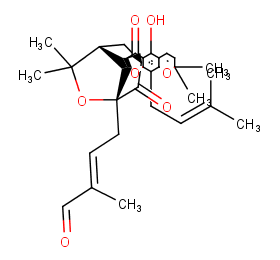
Ingredient ID: NPC170838
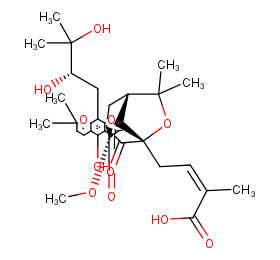
Ingredient ID: NPC166924
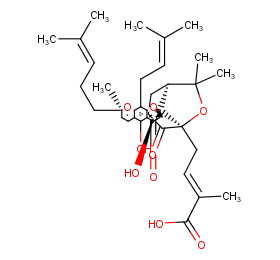
Ingredient ID: NPC164858
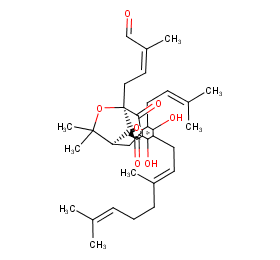
Ingredient ID: NPC164158
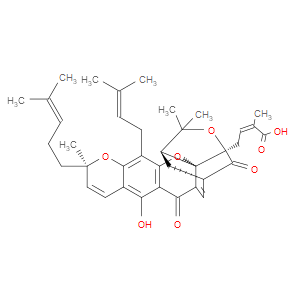
Ingredient ID: NPC158329
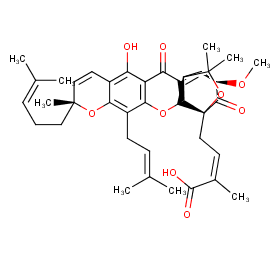
Ingredient ID: NPC157297
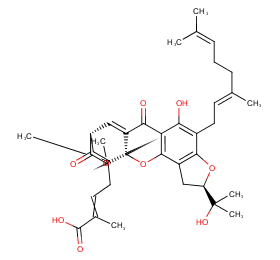
Ingredient ID: NPC15439
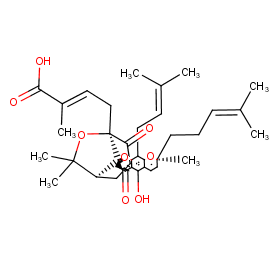
Ingredient ID: NPC147116
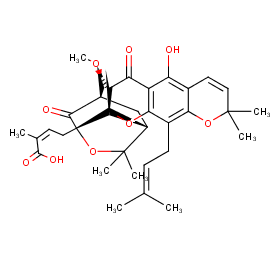
Ingredient ID: NPC145040
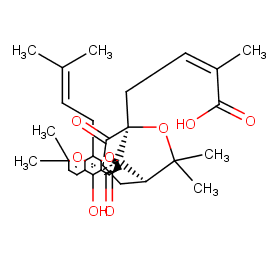
Ingredient ID: NPC144462
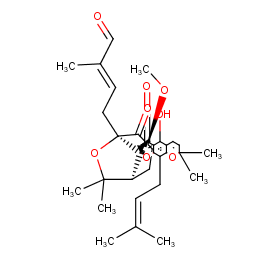
Ingredient ID: NPC14148
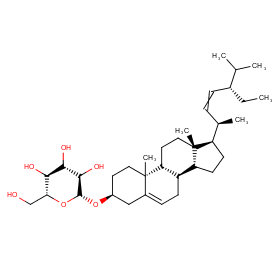
Ingredient ID: NPC131190
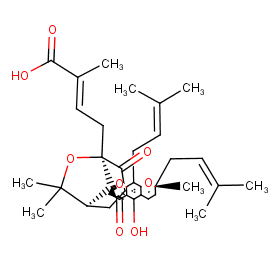
Ingredient ID: NPC120559

Ingredient ID: NPC115062
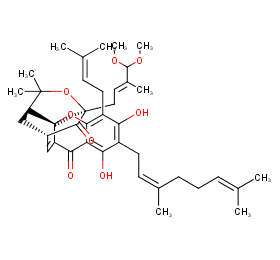
Ingredient ID: NPC114031
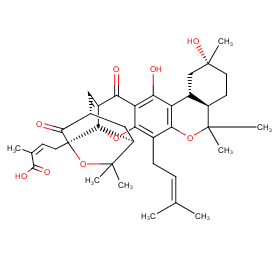
Ingredient ID: NPC109868
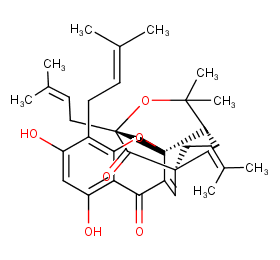
Ingredient ID: NPC10321
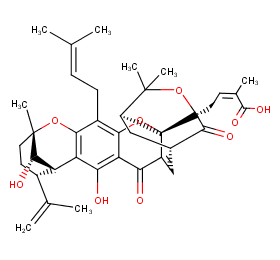
Ingredient ID: NPC101428
Classification of Human Proteins Collectively Targeted by the Plant
Detailed Information of Target Proteins
| Target Type | Protein Class | Gene ID | Protein Name | Uniprot ID | Target ChEMBL ID |
|---|---|---|---|---|---|
| Therapeutic Target | Nuclear hormone receptor subfamily 1 | NR1H4 | Bile acid receptor FXR | Q96RI1 | CHEMBL2047 |
| Therapeutic Target | Other cytosolic protein | MCL1 | Induced myeloid leukemia cell differentiation protein Mcl-1 | Q07820 | CHEMBL4361 |
| Therapeutic Target | Protein Phosphatase | PTPN1 | Protein-tyrosine phosphatase 1B | P18031 | CHEMBL335 |
Clinical trials associated with plant from natural product (NP) & plant level:
| Clinical trials type | Number of clinical trials | |
|---|---|---|
| 2 | ||
| NCT ID | Title | Condition | Form in clinical use | Associated by plant or compound |
|---|---|---|---|---|
| NCT00701987 | Safety, Tolerability, and Preliminary Efficacy Study of ALS-357 in Patients With Cutaneous Metastatic Melanoma | melanoma | Betulinic Acid (NPC264317) | |
| NCT00346502 | Evaluation of 20% Betulinic Acid Ointment for Treatment of Dysplastic Nevi (Moderate to Severe Dysplasia) | dysplastic nevus | Betulinic Acid (NPC264317) |
❱❱❱ Associated Human Diseases and Detailed Association Evidence
How do we define the Plant-Targeted Human Disease Association?
Associated human diseases of an individual plant are summurized based on FOUR types of association evidence, these include:
❶ Association by Therapeutic Target: Bioactive protein targets of the plant were defined in "Molecular Targets" section, target-disease associations collected from TTD database were subsequently used to build the associations between the plant and its targeted human diseases.
❷ Association by Disease Gene Reversion: Plant and a specific disease will be associated when >= 1 plant target gene overlaped with disease's DEGs.
❸ Association by Clinical Trials of Plant: Plant and a specific disease will be associated when >= 1 clinical trial (the plant is the intervetion) can be matched in ClinicalTrials.gov database.
❹ Association by Clinical Trials of Plant Ingredients: Plant and a specific disease will be associated when >= 1 clinical trial (the plant ingredient is the intervetion) can be matched in ClinicalTrials.gov database.
Associated Disease of the Plant |
Association Type & Detailed Evidence |
|---|---|
MelanomaDisease Category: 02.NeoplasmsDisease ICD-11 Code: 2C30 |
MCL1
NCT00701987 |
MastocytosisDisease Category: 02.NeoplasmsDisease ICD-11 Code: 2A21 |
MCL1
|
Multiple myelomaDisease Category: 02.NeoplasmsDisease ICD-11 Code: 2A83 |
MCL1
|
Lung cancerDisease Category: 02.NeoplasmsDisease ICD-11 Code: 2C25 |
MCL1
|
Solid tumour/cancerDisease Category: 02.NeoplasmsDisease ICD-11 Code: 2A00-2F9Z |
MCL1
|
Postoperative inflammationDisease Category: 01.Certain infectious or parasitic diseasesDisease ICD-11 Code: 1A00-CA43 |
PTPN1
|
Malignant intestine neoplasmDisease Category: 02.NeoplasmsDisease ICD-11 Code: 2C0Z |
MCL1
|
Myeloproliferative neoplasmDisease Category: 02.NeoplasmsDisease ICD-11 Code: 2A20 |
MCL1
|
Malignant haematopoietic neoplasmDisease Category: 02.NeoplasmsDisease ICD-11 Code: 2B33 |
MCL1
|
Mature B-cell lymphomaDisease Category: 02.NeoplasmsDisease ICD-11 Code: 2A85 |
MCL1
|
Acute myeloid leukaemiaDisease Category: 02.NeoplasmsDisease ICD-11 Code: 2A60 |
MCL1
|
Acute diabete complicationDisease Category: 05.Endocrine, nutritional or metabolic diseasesDisease ICD-11 Code: 5A2Y |
PTPN1
|
Breast cancerDisease Category: 02.NeoplasmsDisease ICD-11 Code: 2C60-2C6Y |
PTPN1
|
Ophthalmic devices/implants/grafts injuryDisease Category: 23.External causes of morbidity or mortalityDisease ICD-11 Code: PK97 |
PTPN1
|
Type 2 diabetes mellitusDisease Category: 05.Endocrine, nutritional or metabolic diseasesDisease ICD-11 Code: 5A11 |
PTPN1
|
Metabolic disorderDisease Category: 05.Endocrine, nutritional or metabolic diseasesDisease ICD-11 Code: 5C50-5D2Z |
PTPN1
|
ObesityDisease Category: 05.Endocrine, nutritional or metabolic diseasesDisease ICD-11 Code: 5B80-5B81 |
PTPN1
|
Dysplastic naevusDisease Category: X.Extension CodesDisease ICD-11 Code: XH9035 |
NCT00346502
|
LeishmaniasisDisease Category: 01.Certain infectious or parasitic diseasesDisease ICD-11 Code: 1F54 |
PTPN1
|
Diffuse large B-cell lymphomasDisease Category: 02.NeoplasmsDisease ICD-11 Code: 2A81 |
PTPN1
|
West Nile virus infectionDisease Category: 01.Certain infectious or parasitic diseasesDisease ICD-11 Code: 1D46 |
MCL1
|
Adenocarcinoma of pancreasDisease Category: 02.NeoplasmsDisease ICD-11 Code: 2C10.0 |
PTPN1
|
Superficial ovarian endometriosisDisease Category: 16.Diseases of the genitourinary systemDisease ICD-11 Code: GA10.B4 |
MCL1
|
Glioblastoma of brainDisease Category: 02.NeoplasmsDisease ICD-11 Code: 2A00.00 |
MCL1
|

